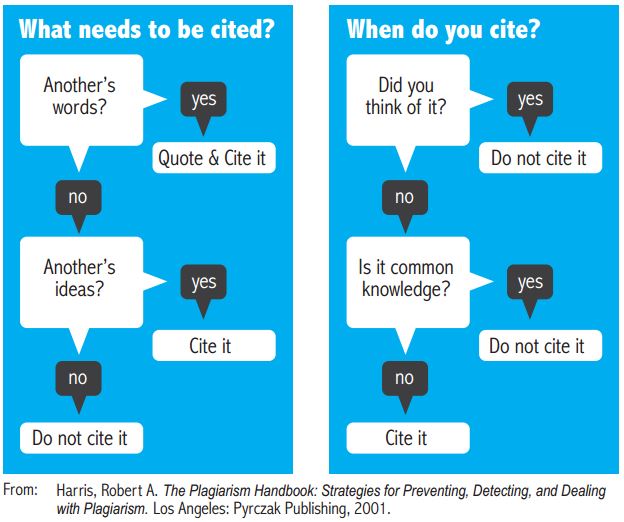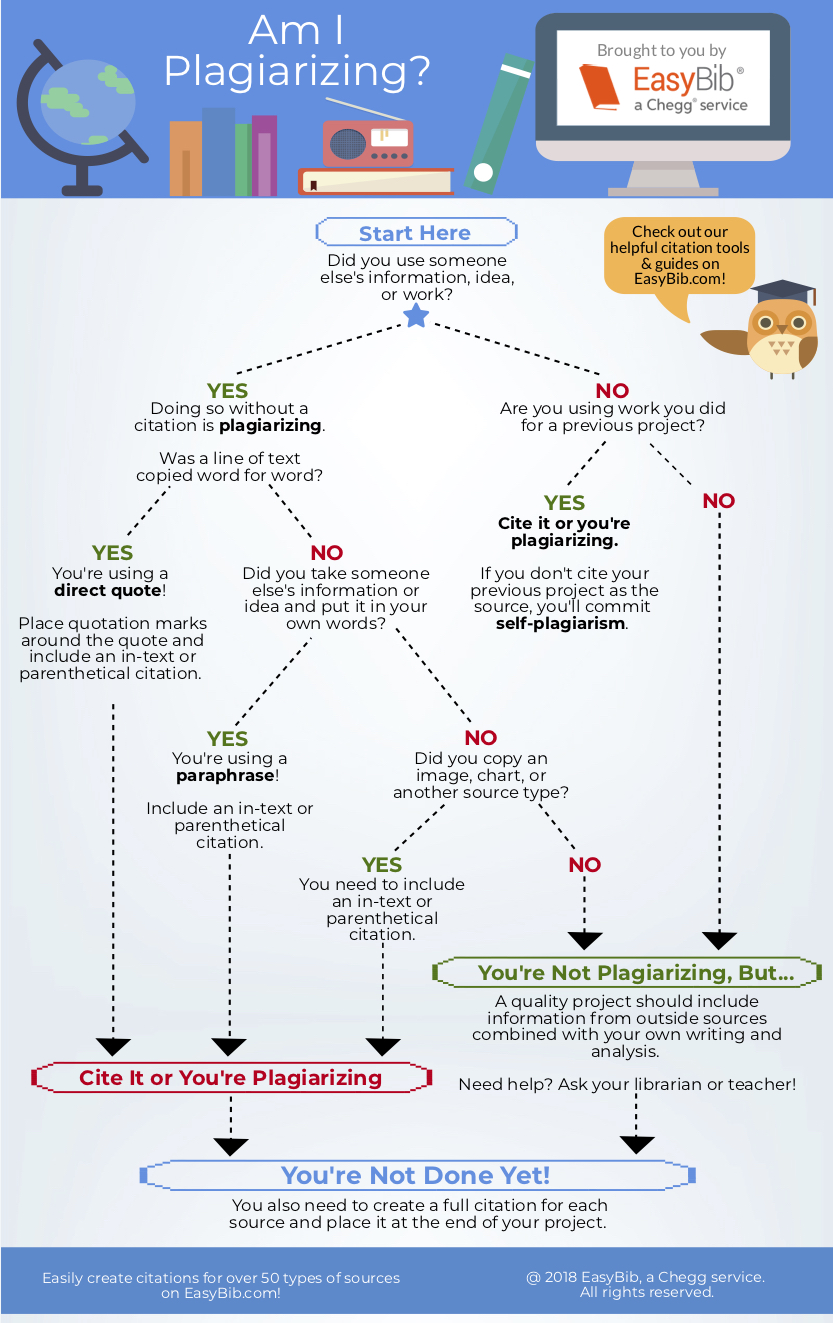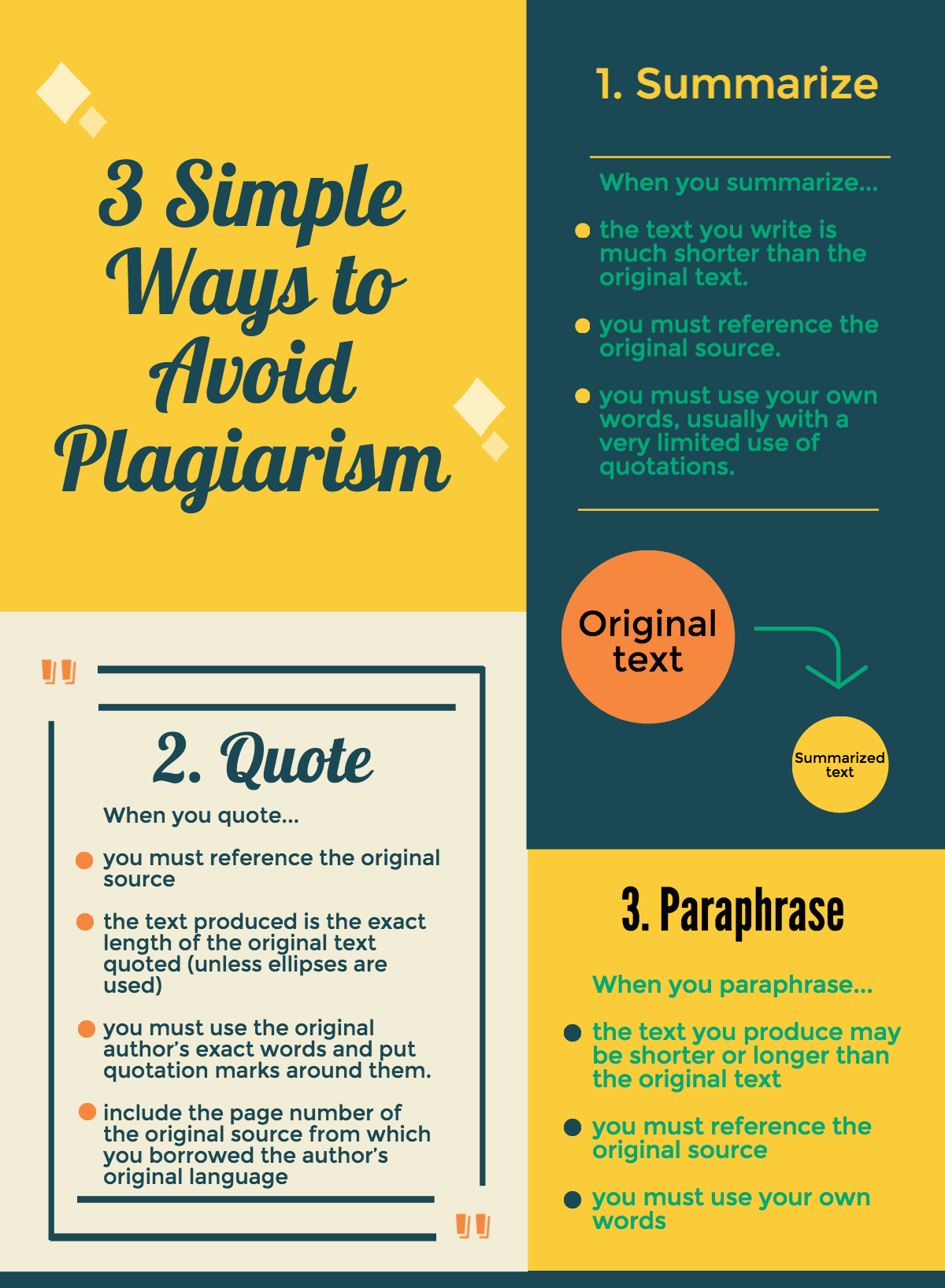RESEARCH & INQUIRY
Plagiarism:
Definition of Plagiarism:
Plagiarise : to steal and pass off (the ideas or words of another) as one's own : use (another's production) without crediting the source
- Merriam-Webster Dictionary
Think you are a master of avoiding plagiarism? Take SFU's Plagiarism's Self-test to find out!
MCMATH'S STATEMENT ON PLAGIARISM AND CHEATING
McMath's Student Agenda Handbook states the following under the section entitled, “Academic Misconduct: Plagiarism, Cheating”:
PLAGIARISM:
Part of writing responsibly is to neither purposely nor accidentally mislead people into thinking someone else’s ideas or writing is your own. If you do, you may be guilty of plagiarism, which is defined as the act of presenting someone else’s ideas as your own.
In word plagiarism, a researcher repeats the exact words of a source without giving the necessary credit. Paraphrase plagiarism occurs when a researcher says basically the same thing as an original source with just a few words changed. In spot or patchwork plagiarism, a researcher uses a source’s key words or phrases as his or her own without giving credit. Lazy plagiarism is the result of sloppy notetaking or research short cuts that includes inadvertent use of another’s language, sloppy and inadequate footnoting or page references, or the use of quotes from other sources as if they were from your own research.
Similarly, submitting the work of another student, tutors, parents, friends, etc. as your own work (even though it has been footnoted and referenced) is plagiarism and not acceptable at McMath. Tutors, parents, friends, etc. are not permitted to write, re-write, or edit large sections of work for a student. It is the student’s responsibility to avoid deliberate or accidental plagiarism and to verify and account for all of their own writing.
CHEATING:
Cheating is a broad term that encompasses all attempts by a student to dishonestly or unfairly give, use or obtain any information or material for a school test or assignment. At McMath, any and all of these examples are considered to be cheating:
1. Copying another person’s work (in whole or in part) and claiming or misrepresenting authorship. This includes essays, assignments, homework, lab reports, computer programs, drawings, sketches, designs, and video or audiotapes and all other assigned work, whether they are the product of another student or of someone outside the school, including previously published work.
2. Supplying information or work of any kind to another student in the knowledge that it may be copied or used, even if that knowledge includes an expectation that the copy will be changed enough to conceal the fact that it is a copy.
3. Copying from another person’s test paper and/or knowingly allowing another student to copy from your test paper.
4. Bringing unauthorized notes or equipment into a test or using unauthorized notes or equipment during a test (including electronic translators, programmable calculators, computers, etc.).
5. Unauthorized communication of any kind during a test.
6. Being absent from a test and then consulting one or more classmates before making up the test.
7. Copying the work of another student who took the same course/exam prior to the student in question.
8. Missing a test or an assignment without a valid reason or justifying the reason under false pretenses (forged note or phone call).
CONSEQUENCES FOR ACADEMIC MISCONDUCT
Involvement in cheating and/or plagiarism is fundamentally dishonest and unethical, and they both violate what we value as a learning community at McMath School. Students found guilty of cheating or plagiarism may face exemption from the honour roll, scholarships, and bursaries for the year.
Parents/guardians will be contacted, counsellors and administration will be notified, and the incident will be documented at the main office.
Take proper notes while researching:
- Do not cut-and-paste information directly from the source
- Take point form notes
- Use your own words
- When directly quoting somebody else's work, use quotation marks ("...") and note page number(s) immediately following the quoted sentence
- Cite your sources as-you-go. Be sure to include in-text citations and a reference list (bibliography) at the end of your assignment
"How to Defend Against Online Plagiarism" by harrisxiong is licensed under CC BY 2.0.
Click the following link to learn more about quoting, summarizing and paraphrasing

Citations

Sharing Presentations with your Teacher:



